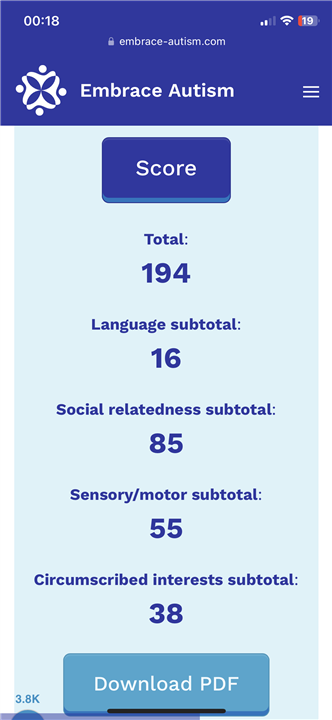Hi. I am waiting to be assessed for high functioning autism after being told by my GP and 2 mental health professionals that I likely have it. I am in my late 30s and am not I guess your “typical” possible autistic.. I have been in my job 20 years and married for almost 20 years.. without going into it all, I do identify with a lot of the traits that have been presented to me but I am struggling to accept this possible diagnosis because I don’t want to get mis-diagnosed and I don’t want to be a fraud or like seem to minimise diagnosed autistic people’s struggles.. does that make sense?
I’ve had severe mental health issues since my early teens and so much of this is making sense and making me feel like maybe I’m not crazy or some alien or something.. but then like I say there are other parts which are a definite “no, that’s not me at all”. I know there’s a huge spectrum so it’s likely that I’ll identify with some parts and not others, I guess I’m just struggling to come to terms with it all.
Has anyone else had a diagnosis /possible diagnosis later in life and struggled with it? How did you get past the worries and just focus on yourself and figuring things out?



